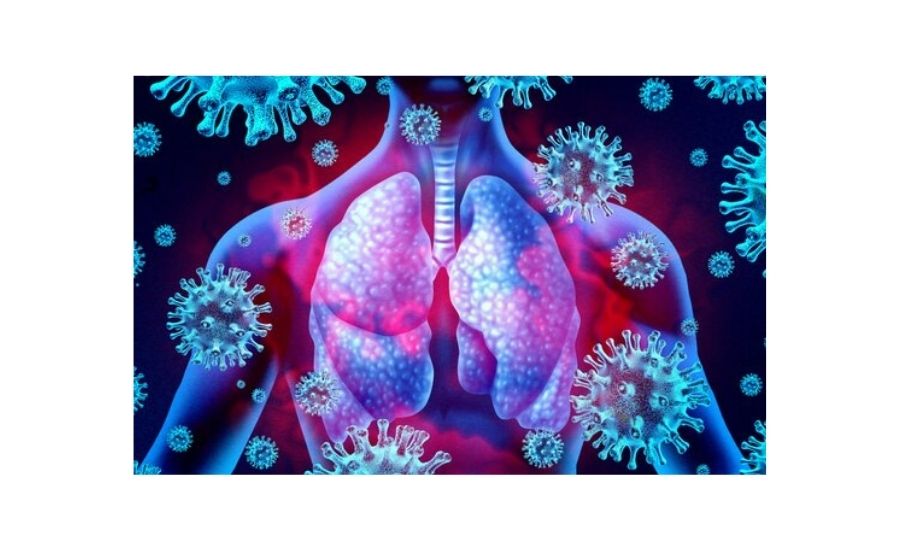Our Stories
In this podcast episode, Rachel and I share our recent – not so great – experiences with Covid-19. We do believe that the statistics are probably accurate in that a large portion of the population may only experience a mild case of Covid-19. However, we think this podcast episode is important to listen to in the event that you, or a family member, turn out to aquire more than a mild case, because it might help you avoid the “hurdles” we went through, and give you a better outcome.
This episode covers the basics of Covid-19, some of the current views of treatment and thoughts on the future of medical choice freedom.
Here, I am just going to list a few of the studies I talked about in the podcast. We would just encourage you to review the information and then consider having a talk with your doctor.
These were on the use of Methyl Prednisolone:
Pierre Kory, MD, MPA Medical Director, Trauma and Life Support Center Critical Care Service Chief Associate Professor of Medicine University of Wisconsin School of Medicine and Public Health
https://www.hsgac.senate.gov/imo/media/doc/Testimony-Kory-2020-05-06-REVISED.pdf
“With this knowledge of the specific COVID inflammatory gene activation combined with knowledge of the gene suppression activity of all known medicines they were able to match the most effective drug for COVID-19 human gene suppression.. and that drug is methylprednisolone (this must be recognized, as the ability of other corticosteroids to control inflammation in cOVId-19 was much less impactful. This is, we believe, an absolutely critical and historic finding. Many centers are using similar but less effective agents such as dexamethasone or prednisone”
https://www.ncbi.nlm.nih.gov/pmc/articles/PMC7256545/
Also here:
https://www.jacionline.org/article/S0091-6749(20)30740-5/pdf
Successful use of methylprednisolone for treating severe COVID-19: (Click below)
The findings from this case series suggest that high‐dose, short‐term corticosteroid therapy early in respiratory failure may provide a good prognosis of patients with COVID‐19‐related ARDS without critical side effects of corticosteroids.
https://pubmed.ncbi.nlm.nih.gov/32893160/
This study shows the importance of the early-stage use of a combination of favipiravir and methylprednisolone in severe cases to achieve a favorable clinical outcome.
https://academic.oup.com/cid/advance-article/doi/10.1093/cid/ciaa601/5840526
In conclusion, early use of a short course of methylprednisolone, an inexpensive and readily available agent, in patients with moderate to severe COVID-19 may prevent progression of disease and improve outcomes.
Notes from that link:
Methylprednisolone was identified as the drug most likely to work; it targeted 27 genes that were differentially expressed in COVID-19-infected tissues versus healthy lung tissues.
Prednisolone was also predicted to be effective at reverting many of the changes caused by COVID-19.“An important finding is that drugs in the same class will not achieve similar effects,” writes the team.
“For instance, methylprednisolone and prednisolone were predicted to be effective in reverting many of the changes triggered by COVID-19, while other closely-related steroids such as prednisone or dexamethasone were not,” write Sorin Draghici (Department of Computer Science, Wayne State University) and colleagues.”
Not all corticosteroids tested were effective
However, the closely-related corticosteroids, namely prednisone, dexamethasone, and hydrocortisone, were not effective at reverting the changes. Prednisone only targeted three differentially expressed genes in COVID-19-infected versus healthy lung tissue, and of those, it only reverted one. Prednisone also targeted two genes in the NHBE cells, but it was not effective at reverting either of them.
Neither dexamethasone nor hydrocortisone seemed to be effective in the COVID-19 tissue, although hydrocortisone seemed to have a marginal effect on NHBE cells.
Treatment Combo Successfully Resolves Cytokine Storm in COVID-19
“A strategy involving a course of high dose methylprednisolone, followed by tocilizumab if needed, may accelerate respiratory recovery, lower hospital mortality and reduce the likelihood of invasive mechanical ventilation in COVID-19-associated CSS,” the authors wrote. “This historically controlled comparison of a strategy with intensive immunosuppression and close monitoring versus a strategy with supportive care only in patients with COVID-19-associated CSS suggests that clinically relevant improvement of respiratory status is 79% more likely, and can be accelerated by a median of 7 days, that hospital mortality can be reduced by 65% and that the need for mechanical ventilation during admission can be reduced by 71%. These outcomes were robust and, especially if confirmed in randomized trials later on, highly relevant from a medical and societal perspective.”
.
This is a video from the Editor in Chief of JAMA on the use of Corticosteroids and Covid-19
Click Here
.
What is the role of the IL-6 inhibitor tocilizumab (Actemra) in the treatment of coronavirus disease 2019 (COVID-19)?
A retrospective review of 25 patients with confirmed severe COVID-19 who received tocilizumab plus investigational antivirals showed patients who received tocilizumab experienced a decline in inflammatory markers, radiological improvement, and reduced ventilatory support requirements.
Another IL-6 inhibitor, tocilizumab
The conundrum of interleukin-6 blockade in COVID-19
https://www.thelancet.com/journals/lanrhe/article/PIIS2665-9913(20)30287-3/fulltext Click Here
When analysing factors associated with reduced mortality in those who received tocilizumab, baseline C-reactive protein concentrations of 15 mg/dL or higher emerged as a clear cutoff, suggesting that IL-6 blockade exerts its best effects among patients with an overt inflammatory state. Moreover, Biran and colleagues did not note any increase in secondary infections, thus supporting the safety of tocilizumab in this setting.
.
.
COVID-19 is, in the end, an endothelial disease
https://academic.oup.com/eurheartj/article/41/32/3038/5901158
.
Endothelial cell infection and endotheliitis in COVID-19
.
https://www.thelancet.com/journals/lancet/article/PIIS0140-6736(20)30937-5/fulltext
.
Spotting the Clotting: Hypercoagulopathy in COVID-19
.
https://www.emsworld.com/1224381/spotting-clotting-hypercoagulopathy-covid-19
.
The Real Reason Post-COVID Myocarditis Is a Worry
https://www.medpagetoday.com/infectiousdisease/covid19/88487
There might not be any guideline-directed therapy to offer those without overt heart failure, but these post-COVID cases need to be studied to check for functional changes at 6 months and beyond, he said.
.
COVID-19 coagulopathy vs disseminated intravascular coagulation
Severe COVID-19 infections seem to cause a profound coagulation abnormality caused by inflammation-induced changes in coagulation in combination with severe endothelial cell injury, with consequent massive release of von Willebrand factor and plasminogen activators.

I am follower of Christ, a sinner saved by grace, trying to walk in the sweetness of life – resting in the strength of the triune God, who fortifies me daily with His righteousness, loving kindness and holiness of spirit. Read full bio here.

